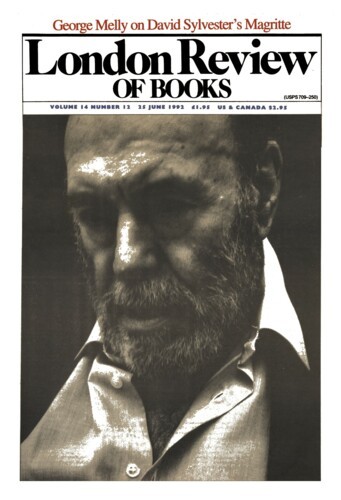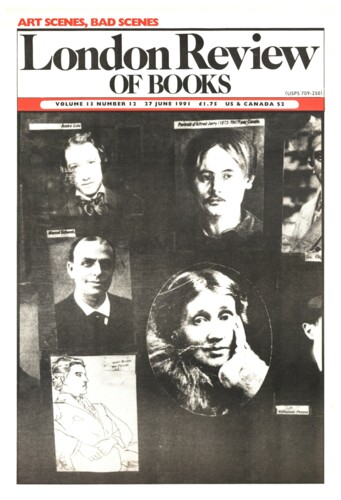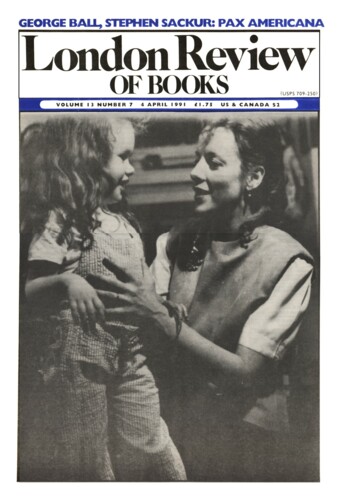Robbing banks
George Melly, 25 June 1992
Inspired by the bourgeois ‘bad taste’ of Magritte’s house in the Rue des Mimosas in suburban Brussels, Jonathan Miller took off into one of his self-intoxicating fantasies. We were there together in the mid-Sixties to make a film for the BBC, and although I had forewarned him, Jonathan couldn’t believe that this overstuffed furniture, this aviary of china birds, these chiming clocks, garish oriental rugs and draped curtains could form the chosen, or at any rate tolerated, habitat of the austere master of unease. He therefore conceived the notion that, at the back of the wardrobe in the bedroom (a chamber so immaculate one could hardly imagine anyone sleeping in it), there was a secret door leading into Magritte’s ‘real bedroom’, whose squalid vice-stained sheets were full of sausage-roll crumbs, where the po was unemptied, and a stale bottle of Tizer had got stuck to the top of a bedside table defaced by cigarette burns.



